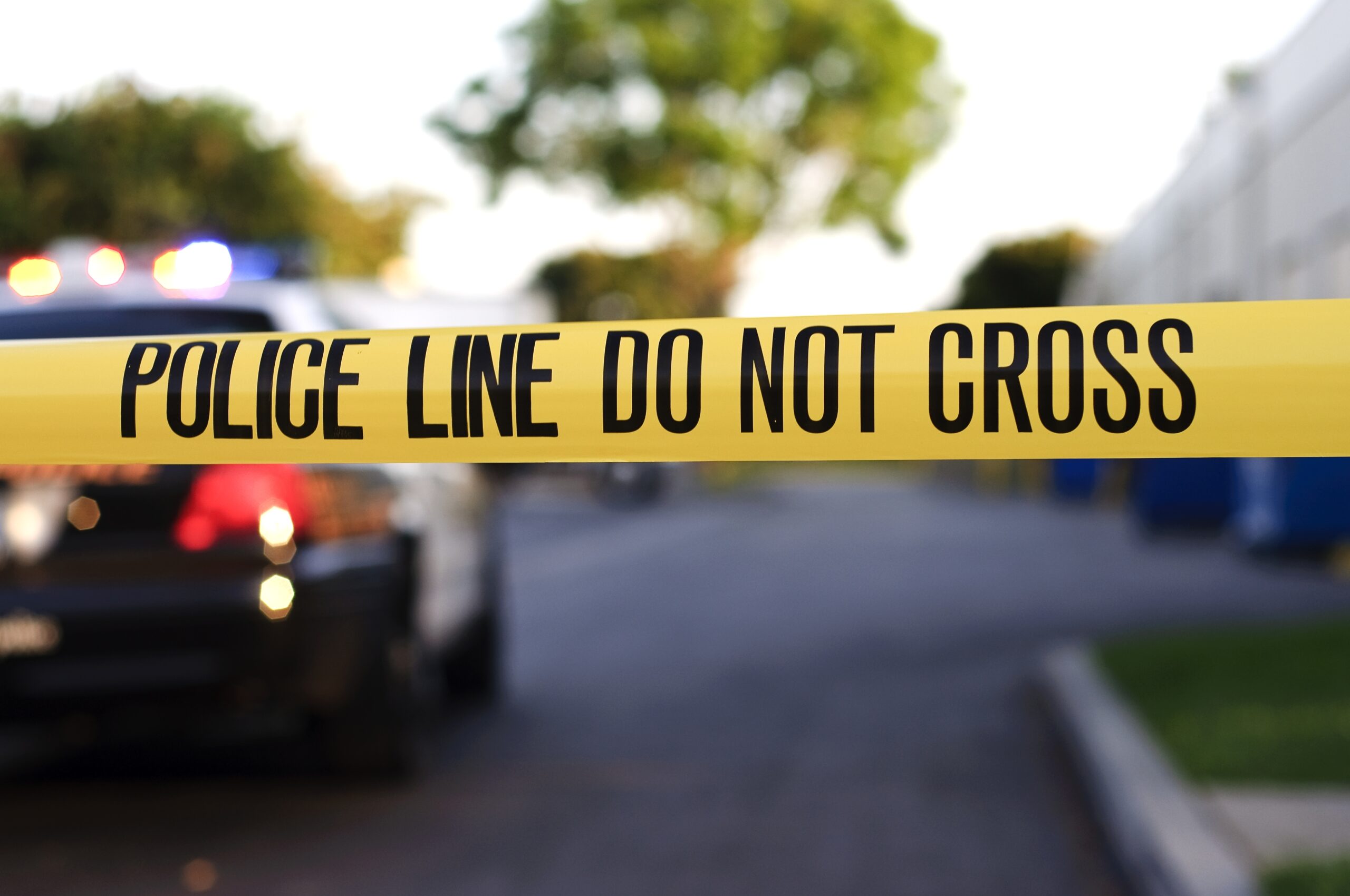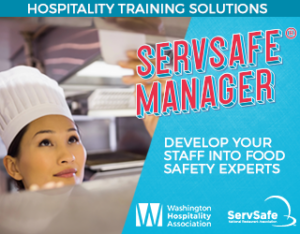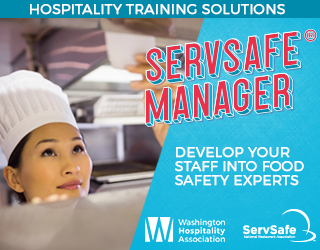
Public safety has become such a growing concern that during the 2023 Legislative session, our Government Affairs Committee asked our Government Affairs team to actively lobby the state for public safety reforms to make communities safer.
But this isn’t a natural issue for our members to be concerned about. We are used to welcoming our guests and communities into our business in the spirit of hospitality, not suspicion. So, we must learn how to keep our employees, ourselves and our businesses safe.
Feel free to explore these resources to help you feel a little more comfortable in your place of business.
You can combat crime in your business by preparing your team and opening lines of communication with law enforcement.
- Prepare
- Prevent
- Protect
- Post-crime
- Outside resources
- Webinar replays: Public Safety with Seattle PD; Crime prevention strategies
- Consider joining your local crime watch group or creating your own with your local business community.
- Research local laws to clarify what legal actions you can take to protect your employees and business.
- Contact your local law enforcement agency and establish the best point of contact. Develop lasting, quality relationships with your local law enforcement agencies so you know who to contact with public safety concerns.
- Consider hiring private security professionals or off-duty police officers and place them near entrances, exits and other visible locations.
- If you see suspicious activity in your neighborhood, document it and report it to local law enforcement. Be consistent.
- Consider installing a real-time security monitoring system.
Know the signs that your business is under surveillance and may be at risk:
- Employees are reporting missing keys or access cards.
- Strangers are taking photos of security cameras.
- Emergency exits that have been accidentally propped or left open.
- Customers ask employees about staffing and security.
- People are loitering around the exits during opening and closing and are monitoring your procedures.
According to the Washington Retail Association, while your business is open to the public, it is privately owned, which means that you can revoke the invitation. You can issue a notice of trespass either verbally or in writing. Any representative of the business, including a designated employee, business owner, property owner or leaseholder can issue the notice. The WRA recommends that you discuss the issuance of this notice with your local law enforcement. You can find a Notice of No Trespass form on the WRA’s website.
Last year, Anthony was joined by Eva Glossum, an industrial hygienist from Labor & Industries and Sgt. Chris Marino of the Snohomish County Sheriff’s Department. The two offer Anthony tips about how to keep you, your team and your business safe.
Unconscious bias training
You may try to create an environment of, “If you see something, say something,” but you should be careful when you are doing this. The Washington Hospitality Association offers training for employees and managers in lodging and foodservice to learn how unconscious bias affects individuals and the work environment. Also available in Spanish. Learn more.
There are steps you can take to discourage robberies at your business.
Avoid keeping unnecessary amounts of cash in the cash drawer: keep only what you need in the till or in a visible tip jar. Transfer the cash into a drop vault that employees do not have access to, whether that is with a key or a combination. Post a notice that you use a drop safe and can’t make change for large denominations.
Never keep large bills in the till or cash drawer but put them into the drop safe when you get them.
If you are depositing the funds into the bank yourself, make frequent trips and at varying times of the day. Carry the cash in a disguised container, box or canister. Don’t visit the bank alone but take along another employee. If you are handling large amounts of cash, consider hiring an armored truck service to make your deposits.
Never allow customers into the premises after closing, especially when an employee is alone.
Security systems
- Install a motion-detecting signaling system into your door to alert you that someone is entering the business.
- Change the keys, safe combinations and access codes after employees are dismissed for cause.
- Install panic buttons under the counter, inside the till, on the floor or wherever is convenient to trip an alarm and alert authorities.
- Install high-resolution, video cameras that pick up a wide range of details: Place them in areas where they can be seen.
- Have a cloud-based video recorder that can store at least three to four weeks of video. If there is an incident, pull and save that footage for future use.
- Regularly test your cameras and ensure your cloud storage is in working order.
How employees can help
- Train them not to prop open security doors and doors to employee-only spaces.
- Thank employees who report problems that could contribute to a crime.
- Post phone numbers and websites for reporting crimes, suspicious activities and emergencies.
- Make sure your team knows which areas are restricted access.
- Train your team to check the identification of service people who are entering the business. Stay alert to their presence while they are there.
- Require staff to immediately report lost or stolen keys.
- If employees are making deposits and feel they are being followed, instruct them to walk to an open business, police precinct or fire department.
- Train staff on closing procedures and last out procedures, walk out together, keys in hand, not looking at a phone, combining multiple small bags into a larger bag.
Active Assailant webinar
Listen as Melissa Holtzclaw of Parker, Smith & Feek discusses what you need to know before you have an active assailant incident at your business.
If your business is being robbed, your employees should be trained in what to do to survive. Possessions can be replaced through your insurance policy, so it’s important that employees focus on their safety first. Review and practice everyone’s role on a regular basis to help them remain calm and act instinctively.
- Stay calm.
- Don’t slow the robber down. Give them what they ask for as quickly as possible.
- Assume every gun is loaded.
- Don’t use any type of weapon against the robber. Another weapon can increase the chances of someone being injured or killed.
- Make sure the robber knows if you are expecting any surprises, such as a delivery or if more employees are on their way.
- If the robber asks for a specific amount, only give them that amount. If the robber demands a certain denomination of bills, give them what they want.
- Narrate your actions out loud. “I’m going to open the cash drawer now and it will beep.”
- Observe the details of the robber and make mental notes of what they look like.
- If the robber gives you a note, put it aside so you can retain it as evidence.
- Watch the robber’s hand movements and note everything they touch for fingerprints later.
- NEVER follow a robber out of the business and do not chase them. If you can view a license plate from inside the business, that is OK.
What you do immediately after a crime occurs is critical. First, call 911. The dispatcher will ask what happened, where you are when it happened and if you know the person who committed the act.
They will also ask if anyone was injured, if they need help and what weapons were used. Stay on the phone with the dispatcher until the police arrive. Make sure that all your employees and customers are safe and unharmed. If they are hurt, attend to them as needed.
Call your security company to let them know what has happened and that you have called 911.
Lock your doors, and don’t let anyone enter other than the police. Ask witnesses to stay until the police arrive and don’t touch anything.
Don’t discuss what happened with anyone else, and work on your witness statement while waiting for the police. Include as many details as possible. If you need to, record audio notes on your smartphone.
If you get to your business and realize it was burglarized overnight, STOP, do not go in, contact authorities. The suspects may still be in the building.
First aid
Execute first aid immediately for anyone who is critically injured and notify emergency services. Continue first aid until the paramedics arrive. If someone is bleeding profusely, apply pressure with your hands or your knees until paramedics arrive.
If your business has large amounts of blood or bodily fluids, consider hiring an outside company to complete the scene clean-up. This prevents putting staff at additional risk during biohazard clean-up. They may not have the proper training or tools to do this safely.
The Washington Hospitality Association offers classes in first aid. Our comprehensive course covers all the basics of first aid, cardiopulmonary resuscitation (CPR) and automated external defibrillator (AED). This course meets OSHA & WISHA requirements for CPR/First-Aid/AED in the workplace. Learn more.
Surveillance footage and documentation
Turn over any video footage to law enforcement. Provide proof of the amount stolen through an itemized list of goods stolen and the amount from the cash drawer. If you know who the suspect is and have had them trespassed from the property in the past, provide this documentation to the authorities.
Call 911 when:
- An emergency is in progress.
- A situation starts to escalate into an emergency.
- A crime just happened.
Call your local law enforcement’s non-emergency number when:
- Your business has been burgled and the suspects are no longer there.
- Your business vehicle has been broken into and there are no suspects present.
- You have new information about a previous crime.
- Your business received a bad check.
If you have someone in your business experiencing a mental-health crisis, call 988 for resources.
Employee care
The aftermath of a crime can have a significant impact on you and your employees. After the crisis, you may experience shock, anger, denial, fear, helplessness and anxiety.
Those who have experienced the crime may feel alone and frightened. They may need to vent about the crime in detail or may not want to talk about it at all.
The victims may worry that the suspect is looking for them and other witnesses. They may overeat or lose their appetite. They may be preoccupied by the robbery and relive it through recurring thoughts.
It’s important to seek out care after an event like this. The Washington Hospitality Association has a collection of mental health resources, including 988, you can use at any time.
American Hotel & Lodging Association: Safety & security resources for crisis situations
AHLA has several resources for lodging businesses to help respond to emergencies. Find information about:
- Terrorist activities for hotels
- Suspicious behavior in hotels
- Active shooters
- Broad security overview
Find this and more information on AHLA’s website.
Both Labor & Industries here in Washington and the Department of Labor on the federal side have published information to help you create a safe environment for your business.
WORKPLACE VIOLENCE: AWARENESS AND PREVENTION FOR EMPLOYERS AND EMPLOYEES
Labor & Industries created this guidebook to help employers and employees recognize minimize and prevent workplace violence and respond appropriately. It includes a sample workplace violence prevention program that employers can adapt to their company’s size and type and incorporate into your company’s accident prevention program or into your employee handbook.
Security companies
If you are looking for a security company to help you with safety, connecting with the community or security for significant events, Risk Solutions Unlimited is an allied member to help with this in Bellingham, Renton, the Seattle area and more on the west side of the state.














![Webinar replay! [Ask a Lawyer] Best hiring practices](https://wahospitality.org/wp-content/uploads/2024/05/CatherineHiring-webinar-150x150.png)









